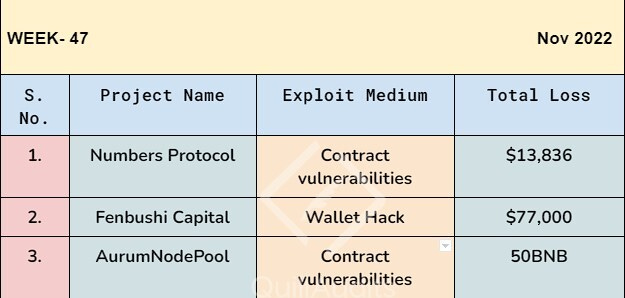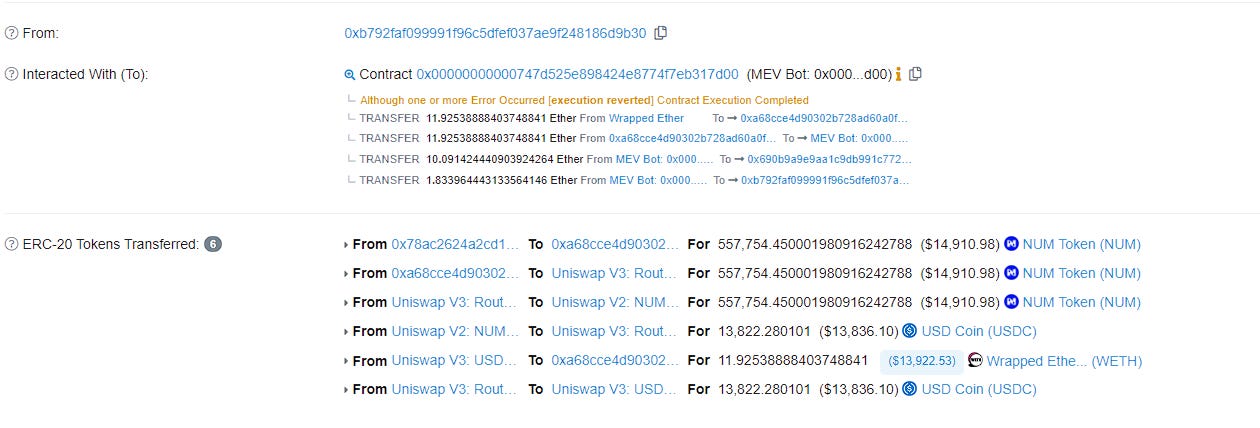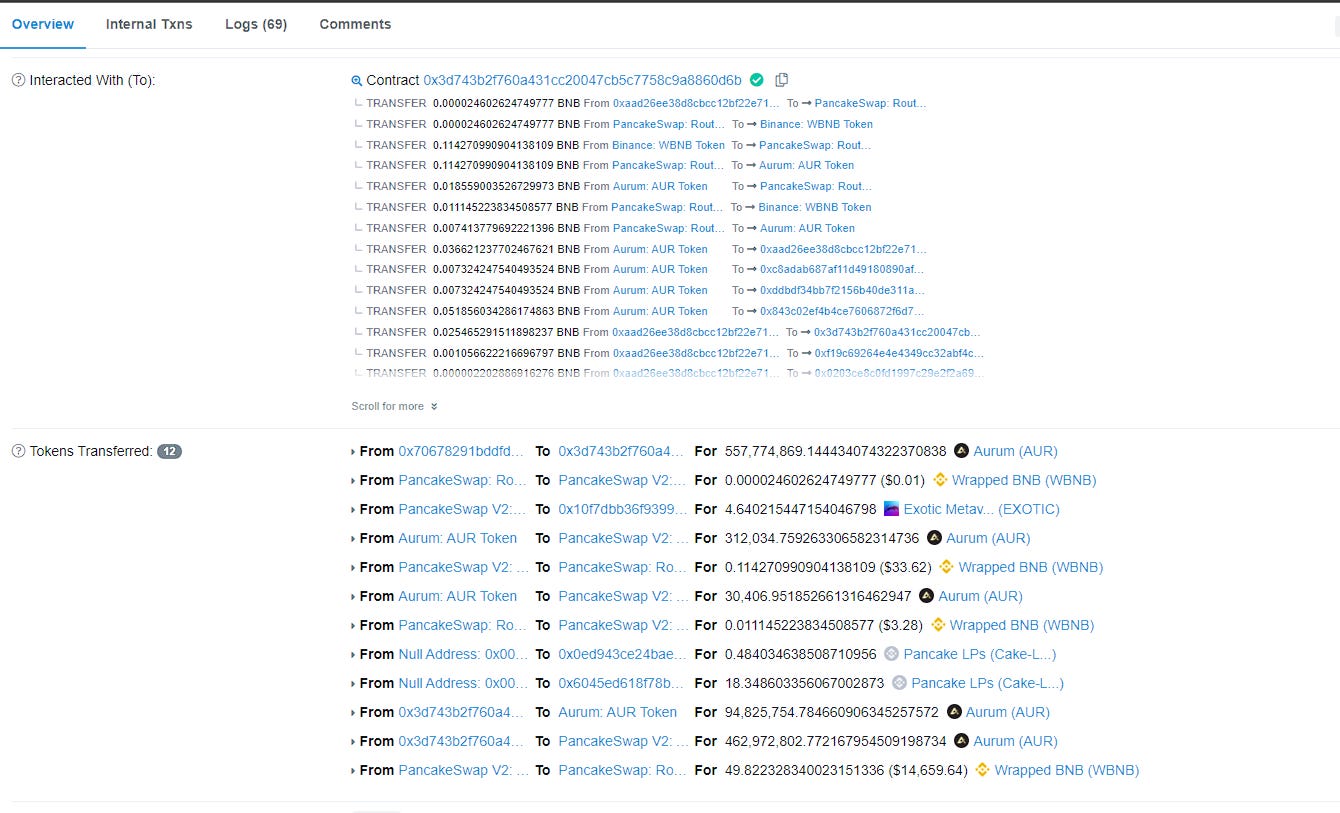In brief⚡
Events Under the Spotlight💥
The numbers Protocol (NUM) token project on the ETH chain fell for a hack.
An attack on the Numbers Protocol (NUM) token project on the ETH chain resulted in a profit of around 13,836 US dollars for the attacker.
The attack contract (0xa68cce) is created by the attacker as a malicious anyToken token, and its underlying token points to the NUM token address;
The NUM token lacks a permit function and has a callback function, which makes it possible to trick the cross-chain bridge and cause the user's assets to be transferred out unexpectedly. This is the major reason for the attack.
The Router contract of the Multichain cross-chain bridge should then be called to invoke anySwapOutUnderlyingWithPermit.
However, since the NUM token contains a callback function and no permit function, even if the attacker submits a fake signature, the transaction will proceed smoothly, and the NUM token at the victim's address can ultimately be moved to the designated attack contract middle;
The attacker then converted the profitable NUM tokens into USDC via Uniswap, then profitably into ETH;
Fenbushi Capital's founder Wallet Hacked.
Hackers steal $42 million from the wallet of Fenbushi Capital's founder.
A total of 42 million dollars in crypto assets, including 38 million dollars in USDC, were stolen from his wallet ending in 894.
According to Shen, the most stolen cryptocurrency was $38 million in USDC; other stolen assets included Tether (USDT), Bitcoin (BTC), and Ethereum (ETH).
In his tweet, he stated that the stolen assets were personal funds with no bearing on Fenbushi-related entities.
The AurumNodePool lost 50BNB to a hack.
The AurumNodePool contract $AUR was targeted for approximately 50 $BNB ($14,538.04).
The changeRewardPerNode function in the contract was not validated, allowing an attacker to set arbitrary values by calling it.
The hacker uses the changeRewardPerNode function to increase the daily reward value to an extremely large number before claiming the node reward with claimNodeReward.
The calculation of node reward is based on the hacker's rewardPerDay value, resulting in a highly calculated reward.
The hacker uses the changeRewardPerNode function to increase the daily reward value to an extremely large number before claiming the node reward with claimNodeReward.
The calculation of node reward is based on the hacker's rewardPerDay value, resulting in a highly calculated reward.
Trending Blog of the Week🚀







